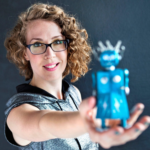Impact of public engagement
Designing a board game about sea level rise
In one of my previous research updates, I hinted at the sea level rise game I’m designing. I don’t want to give away too many spoilers for those of you who will be playing the game at Betweter Festival on 29 September 2023, but I would like to share some insights about the design process with you.
Why a game?
Remember that people tend to view climate change as ‘psychologically distant’: far in the future, happening to other people, far away, and highly uncertain. Reducing that psychological distance tends to increase people’s willingness to act, regardless of how attractive, important, or difficult they see the task. To do that, we can apply the idea of framing (Badullovich et al., 2020): emphasising certain aspects of a topic. Framing can make communication more tailored and relevant for certain audiences. So in my case, to reduce that psychological distance, I’d like to emphasise the aspects of sea level rise that are happening in the (relatively) near future, here in the Netherlands, to people like ourselves, and that have a relatively high level of certainty.
Zooming into my specific impact goals, as I’ve mentioned earlier, I’d like participants in my public engagement activity to realise that sea level rise is relevant for us, and what we do is relevant for sea level rise. One of the most challenging aspects of climate-conscious behaviour is the lack of direct feedback (Renes, 2021), so what if we make an activity where people directly see how their actions shape the future? That’s how in my first brainstorm with designers Sjors and Ruud and sea level rise researcher Tim Hermans, we ended up with the idea of making a tabletop board game.
Dilemmas and scenarios
 Of course I have to make sure that the game content and mechanics are relevant to my impact goals. First of all: making participants realise that their actions make a difference in the amount of sea level rise. That’s why everything in the game is personal. As opposed to SMHI’s Climate Adaptation Game (which I’d absolutely recommend, by the way), the participants of our sea level rise game are asked to make personal choices, about where they’d like to live, how they’d prefer to travel and how they want to spend their money.
Of course I have to make sure that the game content and mechanics are relevant to my impact goals. First of all: making participants realise that their actions make a difference in the amount of sea level rise. That’s why everything in the game is personal. As opposed to SMHI’s Climate Adaptation Game (which I’d absolutely recommend, by the way), the participants of our sea level rise game are asked to make personal choices, about where they’d like to live, how they’d prefer to travel and how they want to spend their money.
My second impact goal is making participants realise that sea level rise is relevant to them. At the end of the game, they are presented the world in the year 2080 that they’ve created through their actions. Most of the young adult participants will still be alive by then, so hopefully that’ll make them feel more connected to the consequences of sea level rise for their personal future. Participants also get to see one or two alternative scenarios that they could’ve ended up with if they’d made different choices. Hopefully, this will make participants reflect on how their choices shape the future, circling back to my first impact goal.
And of course there’s the impact measurement at the end, to see if the game actually accomplishes those goals. In a brief questionnaire, participants will be asked to answer a few questions about how familiar they are with science and about how the game has influenced their views on sea level rise.
Intermezzo

“Much to learn, you still have”
And then, all of a sudden, in the middle of the design process, right before my summer vacation, surprise! I found out that I need to request an ethical review of my study, since I’m gathering data about people. Of course it’s good to be conscientious about these things, so I’m happy to do it, but it did mean quite a bit of extra work when I got back from my vacation. It’s quite a thorough process and it took me a while to get everything sorted out: make a data management plan, figure out what things like Yoda en ORCID are, write something that sort of makes sense about the statistical methods I’m planning to use, all that jazz.
Anyway, the ethics review board is now, as we speak, diligently reviewing the documents I submitted, and so, while I eagerly await their response: on with the design process!
Testing the game
Speaking of doing things thoroughly: of course I’m not going to present a game at Betweter Festival without properly testing it first. Going back in time a bit, just before the summer I presented some of the dilemmas to a high school class of 17- and 18-year-olds. It was immensely enjoyable to hear their discussions about the difficult choices I gave them. And their help was very valuable. They forced me to be precise: “You can’t just say ‘boat’. Is it a sailboat or a cruise ship?” They corrected some of my premises: “Any job with a two hour commute is not my dream job!” And it was very reassuring to notice that they were highly engaged with the topic.
 Later, in the middle of the summer, when the game consisted of more than just a bunch of dilemmas, I gathered a group of colleagues for a test session of the gameplay. I sat to the side with my laptop, furiously taking notes and timing the different parts of the game while my colleagues played the game twice. This test session was also very valuable: some practicalities need to be changed (bigger game board, different playing pieces), and most importantly: I’d gotten a bit too carried away with writing beautifully dystopian future scenarios, which might have been nice for a novella, but not for a board game that is supposed to empower its players. One of the test participants told me two days later that she still felt a bit depressed about it. Oops. Getting people into a climate depression was not my intention!
Later, in the middle of the summer, when the game consisted of more than just a bunch of dilemmas, I gathered a group of colleagues for a test session of the gameplay. I sat to the side with my laptop, furiously taking notes and timing the different parts of the game while my colleagues played the game twice. This test session was also very valuable: some practicalities need to be changed (bigger game board, different playing pieces), and most importantly: I’d gotten a bit too carried away with writing beautifully dystopian future scenarios, which might have been nice for a novella, but not for a board game that is supposed to empower its players. One of the test participants told me two days later that she still felt a bit depressed about it. Oops. Getting people into a climate depression was not my intention!
Back to you
So, my work is now cut out for me. There’s some more rewriting to be done, the game board and playing pieces need some tweaks, I have to find and train some people to help me coordinate the game, etcetera, and of course I hope to get a positive response from the ethics review board. Less than six weeks to go until Betweter Festival… Will I see you there?
And until that time: what do you think about the concept of using a game as a means of science communication? Have you played games before – video, tabletop or otherwise – that changed your worldview or taught you something? Which aspects of those games did you feel were most valuable?


